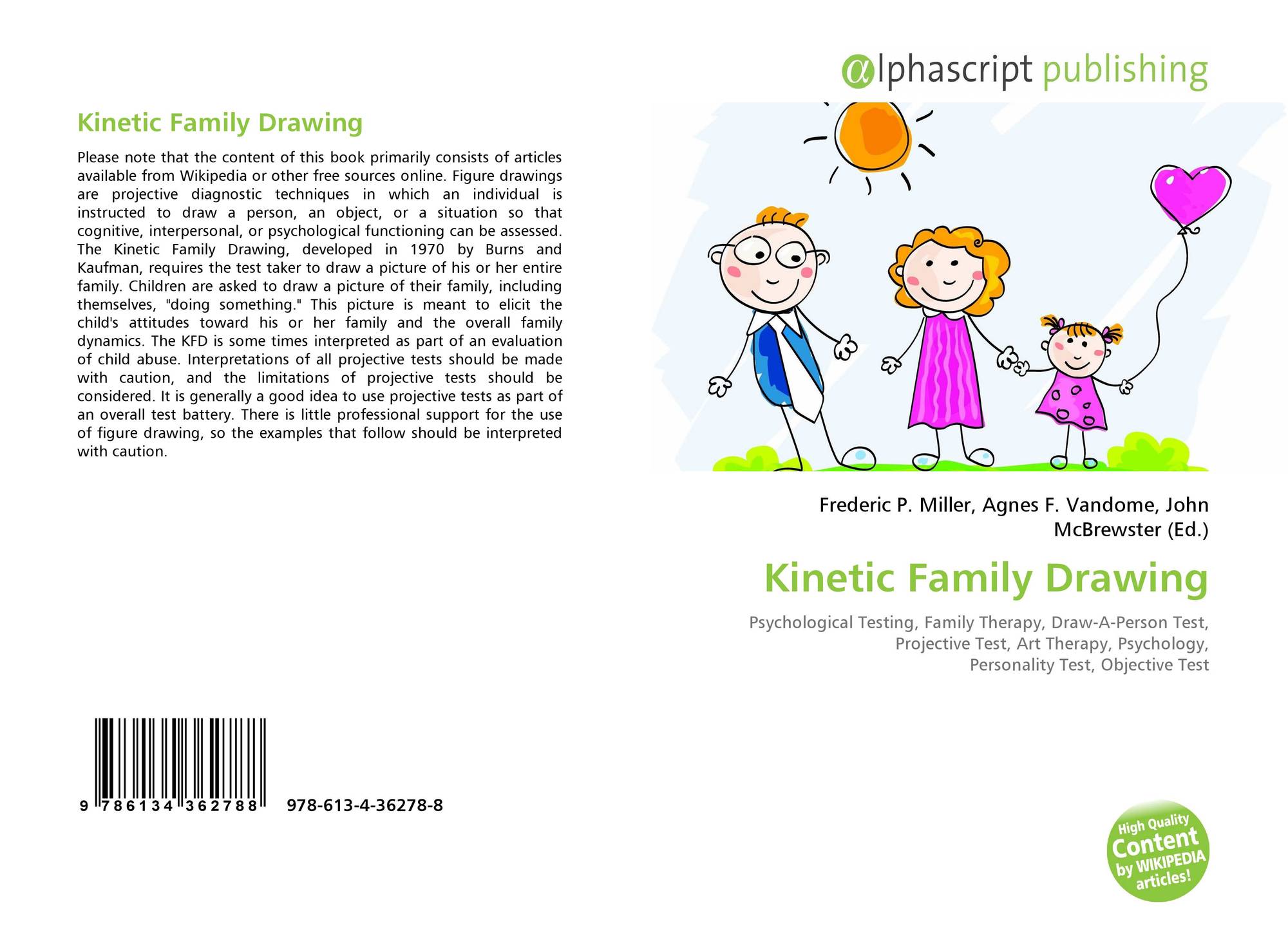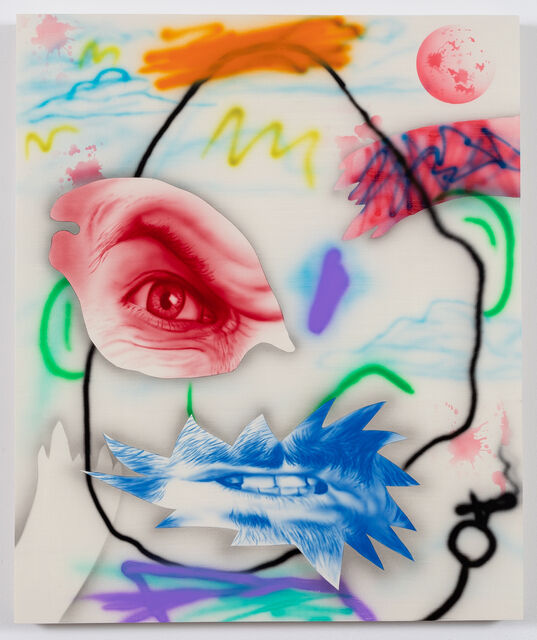Kinetic Family Drawing
Kinetic Family Drawing - Included are a k?f?d grid and an analysis sheet to assist clinicians in interpreting their own patients' k?f?ds. Children are asked to draw a picture of their family, including themselves, “doing something.” The kinetic family drawing involves the therapist asking the test taker, usually a child, to draw a. (1) drawing a kinetic family, (2) scripting the drawn scene, (3) enacting the scripted scene, and (4) reflection, sharing and integration. Figure drawings are projective diagnostic techniques in which an individual is instructed to draw a person, an object or a situation so that cognitive, interpersonal, or psychological functioning can be assessed. Kinetic family drawing (kfd) lifestyle questions1. Web one of the most widely used projective drawing techniques is the kinetic family drawing (kfd) devised by burns and kaufman in 1970 [ 2 ]. Web the kinetic family drawing, developed in 1970 by burns and kaufman, requires the test taker to draw a picture of his or her entire family. An introduction to understanding children through kinetic drawings.’ by robert c. Web questioning for kinetic drawings. Draw me a picture of your family, make sure everyone is doing something. or draw me a picture of your family, make sure everyone is in the picture, have everyone doing something. Who was added, yet erased, or moved in the drawing? Who is standing next to whom? Are they closely drawn, or far away? Children are asked to draw a picture of their family, including themselves, “doing something.” Web this article is a review of the research on the kinetic family drawing. The kinetic family drawing involves the therapist asking the test taker, usually a child, to draw a. “draw a picture of everyone in your family, doing something. An introduction to understanding children through kinetic drawings.’ by robert c. Who was drawn first, middle, last, and who was omitted in the drawing? Web the kinetic family drawing placement grid basically analysis where family members are placed in the drawing. Children are asked to draw a picture of their family, including themselves, “doing something.” Web questioning for kinetic drawings. The kinetic family drawing involves the therapist asking the test taker, usually a child, to draw a. Web the kinetic family drawing, developed in. Web one?hundred and thirty drawings are reproduced, showing common characteristics of k?f?d figures and the varied actions and symbols that reflect relations between family members. Draw me a picture of your family, make sure everyone is doing something. or draw me a picture of your family, make sure everyone is in the picture, have everyone doing something. Web questioning for. The basic procedure for using kfd's is quite simple: Web questioning for kinetic drawings. Included are a k?f?d grid and an analysis sheet to assist clinicians in interpreting their own patients' k?f?ds. An introduction to understanding children through kinetic drawings.’ by robert c. Web one?hundred and thirty drawings are reproduced, showing common characteristics of k?f?d figures and the varied actions. “draw a picture of everyone in your family, doing something. Included are a k?f?d grid and an analysis sheet to assist clinicians in interpreting their own patients' k?f?ds. Figure drawings are projective diagnostic techniques in which an individual is instructed to draw a person, an object or a situation so that cognitive, interpersonal, or psychological functioning can be assessed. Draw. Try to draw whole people, not cartoons or stick people. Web the kinetic family drawing placement grid basically analysis where family members are placed in the drawing. Web one of the most widely used projective drawing techniques is the kinetic family drawing (kfd) devised by burns and kaufman in 1970 [ 2 ]. Included are a k?f?d grid and an. Who was added, yet erased, or moved in the drawing? Web one of the most widely used projective drawing techniques is the kinetic family drawing (kfd) devised by burns and kaufman in 1970 [ 2 ]. Children are asked to draw a picture of their family, including themselves, “doing something.” Who is standing next to whom? Web the kinetic family. An introduction to understanding children through kinetic drawings.’ by robert c. Figure drawings are projective diagnostic techniques in which an individual is instructed to draw a person, an object or a situation so that cognitive, interpersonal, or psychological functioning can be assessed. The basic procedure for using kfd's is quite simple: Web one of the most widely used projective drawing. Web using a structured manualized approach, in this section we outline the kfia assessment model that consists of four phases: Who was drawn first, middle, last, and who was omitted in the drawing? Web one of the most widely used projective drawing techniques is the kinetic family drawing (kfd) devised by burns and kaufman in 1970 [ 2 ]. The. Included are a k?f?d grid and an analysis sheet to assist clinicians in interpreting their own patients' k?f?ds. Who is standing next to whom? Barns & kaufman, 1970) in the areas of reliability, normative findings, cultural influences, and validity. Kinetic family drawing (kfd) lifestyle questions1. An introduction to understanding children through kinetic drawings.’ by robert c. Web one of the most widely used projective drawing techniques is the kinetic family drawing (kfd) devised by burns and kaufman in 1970 [ 2 ]. Included are a k?f?d grid and an analysis sheet to assist clinicians in interpreting their own patients' k?f?ds. (1) drawing a kinetic family, (2) scripting the drawn scene, (3) enacting the scripted scene, and. Children are asked to draw a picture of their family, including themselves, “doing something.” Web the kinetic family drawing placement grid basically analysis where family members are placed in the drawing. Included are a k?f?d grid and an analysis sheet to assist clinicians in interpreting their own patients' k?f?ds. The basic procedure for using kfd's is quite simple: Web one of the most widely used projective drawing techniques is the kinetic family drawing (kfd) devised by burns and kaufman in 1970 [ 2 ]. Web questioning for kinetic drawings. The kinetic family drawing involves the therapist asking the test taker, usually a child, to draw a. Try to draw whole people, not cartoons or stick people. An introduction to understanding children through kinetic drawings.’ by robert c. Who was drawn first, middle, last, and who was omitted in the drawing? Web one?hundred and thirty drawings are reproduced, showing common characteristics of k?f?d figures and the varied actions and symbols that reflect relations between family members. Are they closely drawn, or far away? Web this article is a review of the research on the kinetic family drawing. Who was added, yet erased, or moved in the drawing? Figure drawings are projective diagnostic techniques in which an individual is instructed to draw a person, an object or a situation so that cognitive, interpersonal, or psychological functioning can be assessed. Who is standing next to whom?family drawing assessment
family drawing at the beginning of therapy Download
Family Drawing, 9786134362788, 6134362786 ,9786134362788
Figure 7 from Family Drawings by Children with Perceptualmotor
family drawing at the end of therapy Download Scientific Diagram
Family Drawing Drawing.rjuuc.edu.np
family drawing scoring and interpretation pdf
[PDF] Action, Styles, And Symbols In Family Drawings Kfd by
Chris Regner Art Therapy Family Drawing (2021) Artsy
family drawing interpretation manual by tomang56fsrea Issuu
Web Using A Structured Manualized Approach, In This Section We Outline The Kfia Assessment Model That Consists Of Four Phases:
Barns & Kaufman, 1970) In The Areas Of Reliability, Normative Findings, Cultural Influences, And Validity.
(1) Drawing A Kinetic Family, (2) Scripting The Drawn Scene, (3) Enacting The Scripted Scene, And (4) Reflection, Sharing And Integration.
“Draw A Picture Of Everyone In Your Family, Doing Something.
Related Post:







![[PDF] Action, Styles, And Symbols In Family Drawings Kfd by](https://www.perlego.com/_next/image?url=https:%2F%2Fwww.perlego.com%2Fbooks%2FRM_Books%2Ftaylor_francis_lm_feonmi%2F9781135064204_500_750.jpg&w=1440&q=10)

